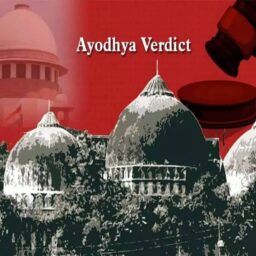Introduction
The case of “Mohd. Ahmed Khan v. Shah Bano Begum” is commonly known as the “Shah Bano Case”. This case dealt with the contentious question of maintenance and is considered a landmark decision in the field. In this ground-breaking judgment, the Supreme Court addressed the question of post-divorce maintenance for an aggrieved Muslim lady who had been divorced from her husband. The Supreme Court alluded to the Quran as the authoritative book, emphasizing the conflict between the implementation of Section 125 of the CrPC and the rules under Muslim Personal Law about maintenance. Shah Bano has fought a long battle after her husband ridiculed her by throwing her out of the home and refusing to pay her maintenance while she was unable to meet her basic requirements. This case paved the way for tens of thousands of women to file previously unrecognized legal claims.
Facts of Case
In 1978, Mohd Ahmed Khan divorced Shah Bano, his wife of 46 years, through ‘triple talaq’. Shah Bano’s abrupt separation from her husband was purportedly caused by an inheritance dispute between both parties. The husband gave his divorced wife 3000 rupees (the pre-agreed mahr sum) at iddat[i], as required by Muslim Personal Law. Shah Bano filed a case under Section 125 of the CrPC with the Judicial Magistrate in Indore after being evicted from her matrimonial residence in Madhya Pradesh. The court ruled that the spouse must give Shah Bano a sum of 25 rupees in maintenance each month. When Shah Bano filed an appeal with the Madhya Pradesh HC in 1979, the sum of maintenance was increased to Rs 179.20/month, effective immediately. It was at this point that, Mohd. Ahmed Khan, appealed to the Supreme Court in 1981 to overturn the ruling of the MP High Court. A five-judge Constitutional Bench was constituted to address the question of the continuation of Section 125 payments notwithstanding the payment of mahr[ii], which was raised in the case. According to Muslim law, a husband’s obligation is limited to the iddat time following divorce, which would consequently overrule the general law reflected in the CrPC. Mohammed Ahmed Khan advocated that Section 125 order for maintenance may be revoked under Section 127 if he had provided the mahr as payment “on divorce”.
Issues Involved in the Case
- Whether or not Section 125 of the CrPC will apply to Muslims?
- In the event of a dispute between Personal Law and Section 125, would Section 125 have superiority?
- Is the simple payment of Mahr by the husband upon divorce sufficient to relieve him of any need to pay maintenance to the wife in the future?
Arguments Made by Appellant & Respondent
Appellant’s Arguments:
He contended that he was only required to give her wife, maintenance during the iddat period, which is a period of three months after such divorce. His wife’s maintenance had been paid for two years at a rate of Rs. 200 per month, and during the time of iddat, he deposited Rs. 3000 as Mahr. As for the marriage and divorce, he said that Muslim personal laws, rather than the CrPC, should govern them, and so he was no longer obligated to maintain her.
Respondent’s Arguments:
The respondent argued that under Section 125 of the CrPC, a man of resources is obligated to sustain his divorced wife and children if she is unable to support herself until she remarries.
Judgment
The unanimity of opinion was reached by the bench of the Constitution. First, the court referred to Section 125 of the CrPC’s religious neutrality, saying that whether the partners were Hindu, Muslim, or Christian was “totally immaterial”.Because it believed the primary goal of Section 125 was to keep dependents out of distress, it could not see any reason to exclude Muslims from its broad protections. The Supreme Court accurately decided in the case that since the duty of a Muslim husband to his divorced wife is restricted to the duration of the “Iddat” period, even if this condition doesn’t respect the rule of law stated in Section 125 of the CrPC, 1973, the husband’s obligation to provide maintenance to the wife continues beyond the iddat term in the event the woman lacks the means to support herself. Additionally, the court determined that this rule violated human rights or was incorrect under Muslim law since a divorced wife was unable to support herself in this instance. The court further ruled that the CrPC would take precedence over Muslim personal law if there was an apparent discrepancy between the two. The court also determined that mahr was not a payment for a divorce, but rather a sum paid to a woman in consideration of the marriage. Thus, the court said that mahr was not meant to be paid during marriage and not during the divorce. It also said that courts could still order maintenance, even if mahr had been paid. The court upheld the amount of maintenance ordered by the M PHigh Court (Rs 179.20/mo), and it also awarded Shah Bano the legal fees associated with the appeal, which the court determined to be 10,000 rupees in total.
Directions of the Supreme Court
The Court found that the appeal should be dismissed on the grounds that:
- The payment of mahr by the husband upon divorce is not sufficient to relieve him of his obligation to provide maintenance to the wife.
- If the wife does not have adequate means to support herself, the husband’s obligation to give maintenance to her continues after the iddat period has expired.
- Section 125 applies to all citizens, regardless of their religious affiliation.
- Section 125 takes precedence over personal law in the event of a contradiction between the two, such as when it comes to the need to give maintenance to a divorced wife who is unable to support herself.
Aftermath the Judgement; Repercussions
The Shah Bano case ruffled feathers among conservative Indian Muslim populations, who were upset by the decision. This caused a great deal of uproar and debate across the country. Immediately after Mrs Indira Gandhi’s murder, the Congress government, which came to power following her death, began to suffer a setback as a result of this court decision. The Rajiv Gandhi government fell under the pressure of the traditional Muslim population and passed the “Muslim Women (Protection of Rights of Divorce) Act, 1986”, into the Indian Parliament as a result of this criticism. After the enactment of the act, the apex court’s decision in the Shah Bano case was declared null and void through this act.
According to the legislation, they disregarded the Supreme Court’s decision and declared that divorced women are not entitled to receive a significant sum of money from their husbands after the term of Iddat and that the husband has no lawful duties beyond that period. It further stated that in the event that a pregnancy occurs before or after the moment of divorce, the husband is entitled to pay the appropriate amount of money for the kid until the child reaches the age of two. The constitutional validity of the Muslim Women Act was contested in Danial Latifi & Anr v. UOI, which concluded that “the husband is required to give maintenance till the woman remarries and not just during the Iddat period”.
CONCLUSION
It took quite some time for the court to reach its conclusion, but it is very significant because it maintains the integrity and faith of those who have placed their trust and confidence in its decision. This verdict has highlighted the need for maintenance, which should be given to divorced Muslim women who are unable to work and support themselves. A great deal of criticism of the Shah Bano decision was generated, with authoritative groups claiming that the decision was contrary to Islamic law. But the Supreme Court delivered a fair and unbiased judgment, ensuring that citizens’ confidence and faith in their government was not shaken.
Author(s) Name: Shashank Shekhar (Hidayatullah National Law University, Raipur)
References:
[i]Iddat is a waiting period of 3 months which is observed by the Muslim Women on account of her husband’s death or divorce. During this period, the wife is barred from marrying.
[ii]A mahr is a dowry paid by the husband to the woman at the time of Muslim marriage, either by mutual agreement or through the operation of the law.















